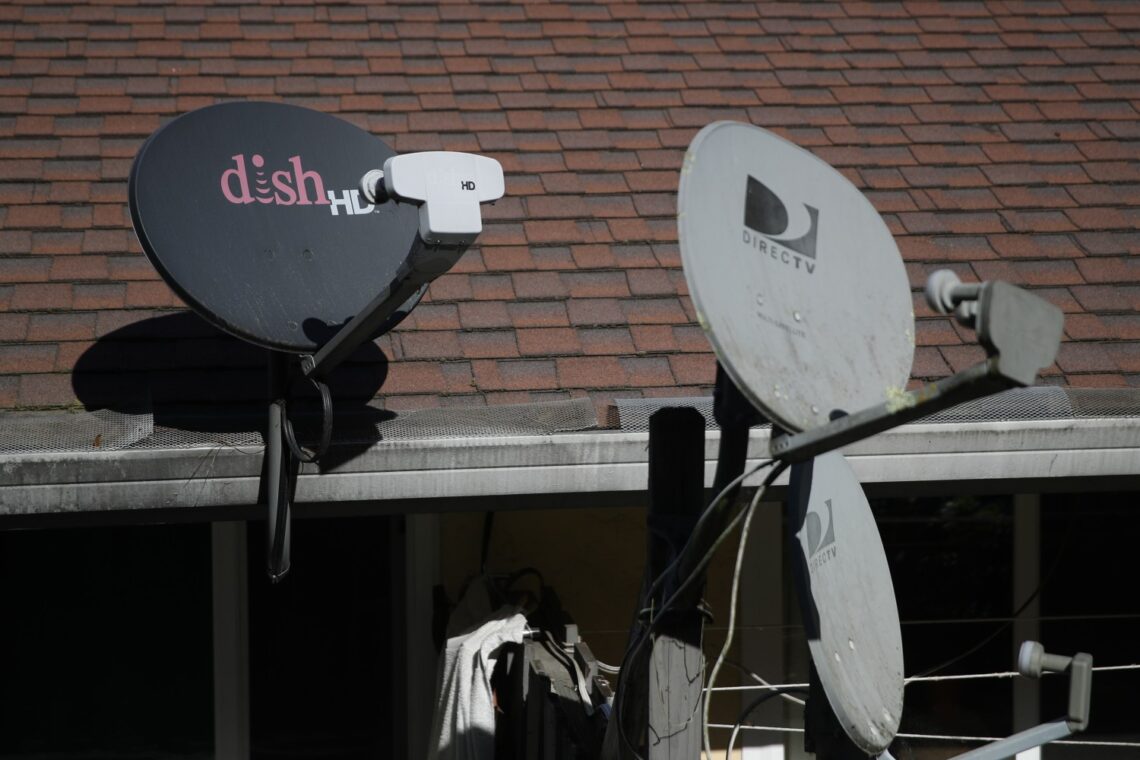DirecTV and Dish Network: A potential merger in the making
The changing landscape of pay-TV
The pay-TV industry has been experiencing a significant decline, with traditional cable and satellite TV providers losing millions of subscribers to streaming services. Amidst this backdrop, DirecTV and Dish Network, two long-time competitors, are reportedly considering a merger. This potential union could reshape the industry landscape, offering a lifeline to both companies as they navigate the challenges of a rapidly evolving market.
DirecTV and Dish Network: A brief history
DirecTV launched its satellite TV service in 1994, followed by Dish Network in 1996. Both companies quickly became formidable competitors to established cable TV operators, offering consumers an alternative to traditional cable services. However, the rise of streaming platforms over the past decade has led to a significant decline in their subscriber bases.
DirecTV, which once boasted a peak of 25.5 million subscribers in 2016, saw its numbers dwindle to an estimated 11.3 million by the end of 2023. Similarly, Dish Network’s subscriber count dropped from over 14 million to 8.07 million by the second quarter of 2024, including 6.07 million for Dish TV and 2 million for Sling TV.
The driving forces behind the merger
The potential merger between DirecTV and Dish Network is reportedly driven by EchoStar CEO Charlie Ergen’s desire to address the company’s looming debt. EchoStar, Dish Network’s parent company, faces a $1.98 billion debt maturing in November 2024. The merger could provide a strategic solution to refinance or pay off this debt, potentially avoiding a bankruptcy reorganization.
Regulatory considerations and past attempts
Previous merger attempts between DirecTV and Dish Network, dating back to 2001, have faced significant regulatory hurdles. However, the current market conditions may present a different scenario. Industry analysts suggest that regulators might be more inclined to approve the merger now, given the secular decline of the satellite TV industry. As one analyst noted, “Better to have one satellite TV operator than none.”
The impact of the NFL Sunday Ticket loss
DirecTV suffered a significant setback two years ago when it lost its exclusive deal with the NFL for the Sunday Ticket premium games package. This package, which DirecTV had offered since 1994, was a major draw for subscribers. The NFL’s new seven-year deal with Google, allowing the package to be sold via YouTube starting with the 2023-24 season, further eroded DirecTV’s competitive edge.
Synergies and challenges of the merger
While the merger between DirecTV and Dish Network could offer some synergies, industry experts caution against overestimating its impact. The two companies use different conditional access technologies for their satellite fleets, limiting potential operational efficiencies. However, consolidation during a period of industry decline is a natural progression, and the merger could extend the lifespan of satellite TV services, albeit modestly.
The future of satellite TV
The potential merger between DirecTV and Dish Network underscores the broader challenges facing the satellite TV industry. As consumers increasingly shift to streaming services, traditional pay-TV providers must adapt to survive. The merger could provide a temporary reprieve, but it is unlikely to reverse the overall trend of declining subscriber numbers.
Conclusion
The potential merger between DirecTV and Dish Network represents a significant development in the pay-TV industry. While it may offer some short-term benefits, the long-term outlook for satellite TV remains uncertain. As the industry continues to evolve, both companies will need to innovate and adapt to stay relevant in a rapidly changing market.
Did you enjoy this article? Share it on your social channels and let us know your thoughts! Don’t miss out on the latest updates! Follow us on social media to stay informed about the newest releases.

 Italian
Italian







